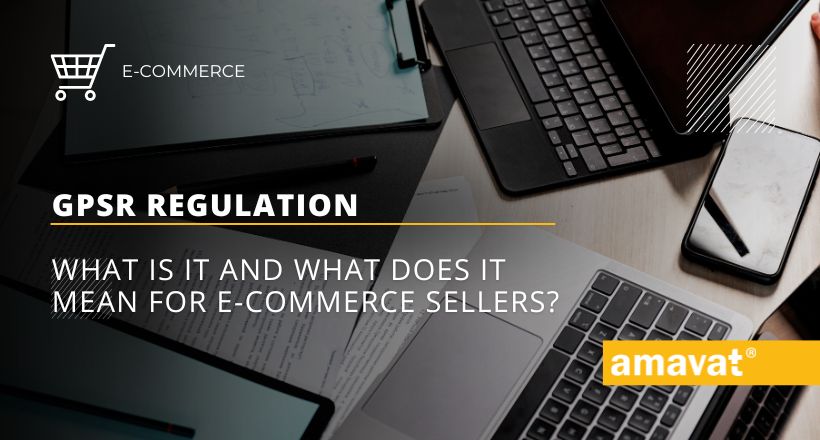GPSR regulation: What is it and what does it mean for e-commerce sellers?
The new General Product Safety Regulation (GPSR), set to take effect on December 13, 2024, introduces significant changes to product safety regulations in the European Union. Its aim is not only to enhance consumer protection but also to adapt the requirements to the evolving market, particularly in the context of e-commerce. This article will discuss the key aspects of GPSR, its impact on the e-commerce sector, and the actions that sellers should take to comply with the new standards.
Key changes in the GPSR regulation
The GPSR is a response to growing product safety concerns in Europe, replacing the previous General Product Safety Directive of 2001. The new regulations introduce stricter rules and direct applicability in member states, eliminating the need for additional national regulations.
GPSR applies to all non-food products, including toys, electronics, and furniture. Its purpose is to ensure that goods offered in both physical and online stores are safe for consumers.
Responsibilities under GPSR
The GPSR applies to all market participants introducing non-food products into the market. These responsibilities lie with manufacturers, who must ensure their products meet safety standards, and importers, who are responsible for ensuring products from outside the EU comply with the new regulations. Additionally, sellers and distributors are required to monitor that the products they offer meet GPSR standards. A notable change in these regulations is the requirement to designate a responsible person within the EU whose contact details must be placed on the packaging or documentation, facilitating product safety accountability.
Impact of GPSR on online sales
In light of the growing number of products sold online, the GPSR introduces specific requirements for online sellers. It is crucial that:
- Product safety information is clearly visible on product listings.
- Proper documentation, including details of the person responsible and safety warnings, is available to consumers.
These regulations aim to boost consumer confidence in online shopping, potentially increasing sales.
GPSR requirements for businesses
Businesses will need to comply with several new requirements, including:
- Designating a responsible person within the EU, whose details must be displayed on the product and documentation.
- Including safety warnings and information in the language of the country of sale, both on packaging and in manuals.
- Identifying products with serial numbers or other identifiers to facilitate tracking.
- Preparing proper documentation, including user manuals, safety sheets, and safety information.
The draft Product Safety Act provides for severe financial penalties for non-compliance with GPSR. These penalties can reach up to 1,000,000 PLN, emphasizing the importance of adhering to the new regulations. The President of the Office of Competition and Consumer Protection (UOKiK) and provincial inspectors of the Trade Inspection will oversee the enforcement of these obligations.
Deadline for compliance
Businesses have until December 13, 2024, to ensure their products comply with the new requirements. After this date, non-compliant products may be removed from the market, and sellers may face penalties.
How to effectively implement GPSR?
To comply with GPSR, businesses should take several actions. They must assess whether their products meet current standards and ensure proper labeling. It is also essential to designate a person responsible within the EU for product compliance. Documentation must be regularly updated, ensuring that e-commerce platforms provide full product information, including user manuals and safety warnings. It is also crucial that product listings comply with the regulations, and all warnings are available in the appropriate languages. Additionally, businesses should continuously monitor legal changes related to GPSR to ensure full compliance.
Summary
The introduction of the General Product Safety Regulation (GPSR) marks a significant step toward enhancing consumer protection and adapting regulations to the evolving market landscape. The new rules impose several responsibilities on manufacturers, importers, and sellers, forcing them to take greater responsibility for the safety of the products they offer. For e-commerce businesses, this is also an opportunity to build customer trust by ensuring compliance with legal requirements. It is essential to remember that failure to act appropriately may result in severe penalties, making proper preparation for the implementation of these regulations a critical part of any company’s strategy.





